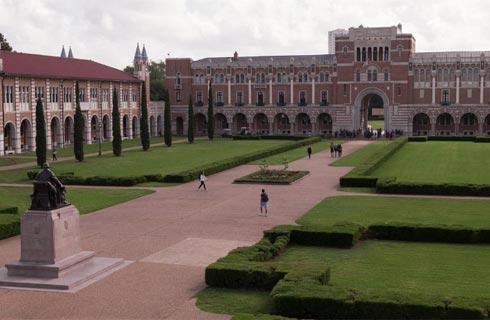Masters of Art in International Development (February Start)

学历文凭
Masters Degree (Taught)

专业院系

开学时间

课程时长

课程学费

国际学生入学条件
Degree Classification 2.1 or equivalent
IELTS: 6.0 (minimum 5.5 in only two components with 6.0 in the others)
TOEFL IBT - Reading - 18, Writing -17 Listening – 17 Speaking - 20 Total - 79
IDP—雅思考试联合主办方

雅思考试总分
6.0
- 雅思总分:6
- 托福网考总分:79
- 托福笔试总分:160
- 其他语言考试:PTE (Pearson): 52 (minimum 42 in only two components with 6.0 in the others)<br>Duolingo English Test 100 overall with minimum of 90 in only two components and 100 in the others
CRICOS代码:
申请截止日期: 请与IDP联系 以获取详细信息。
课程简介
相关申请
 预科
预科 奖学金
奖学金 实习机会
实习机会 在校学习
在校学习 跨境学习
跨境学习 校园授课-线上开始
校园授课-线上开始 在线/远程学习
在线/远程学习
开学时间&学费
学费信息仅供参考,请与IDP联系以获取详细信息
| 开学时间 | 时长 | 学费 | 地点 |
|---|---|---|---|
| 暂无 | 暂无 | 暂无 | 暂无 |
学校排名

世界排名190
数据源:
泰晤士高等教育世界大学排名
关于东安格利亚大学

东安格利亚大学(UEA)是一所位于英国诺里奇市的校园式研究型大学。根据2025年《完全大学指南》 排名,UEA位列英国第25名,为来自世界各地的17500多名学生提供卓越的学术、社交和文化设施。UEA在学术卓越性和学生体验之间实现了完美平衡。校园坐落在风景如画的320英亩公园绿地中,旨在为学生提供一站式服务。从商店、餐厅、酒吧、牙医诊所、托儿所、诊所和24小时开放的图书馆,到国际知名的音乐场所和体育公园,所有设施都近在咫尺,方便学生入住UEA种类繁多的校内宿舍。诺里奇市诺里奇市以其历史悠久的大教堂、12世纪的诺曼城堡和保存完好的古城墙而闻名。从伦敦乘火车不到2小时即可到达诺里奇,它是英国最宜居的城市之一(2024年《泰晤士报》 )。这里拥有绝佳的购物场所、精彩的夜生活和充满活力的音乐氛围。诺里奇不仅被美丽的英国乡村环绕,而且距离美丽的诺福克海岸也只有很短的车程。它还以其丰富的文化而闻名,是英格兰第一个被联合国教科文组织授予''文学之都''称号的城市。诺里奇的大学生活国际学生是UEA学生生活中不可或缺的一部分。大学热情欢迎国际学生,并在学习期间及毕业后持续提供支持。UEA 的学生可以参加丰富多彩的活动,例如去电影院观看最新上映的电影、在当地咖啡馆玩桌游、租船出海、体验密室逃脱、保龄球和冬季运动等等。不仅如此,诺里奇的生活成本通常比其他大学城更低,租金比伦敦低 53.7%,餐饮价格比伦敦低 21.4%。
本校相关课程

工商管理硕士
学历文凭
Masters Degree (Taught)
开学日期
课程费用总额


理学学士(荣誉)言语和语言治疗
学历文凭
Bachelor Degree with Honours
开学日期
课程费用总额


理学士(荣誉)理学士
学历文凭
Bachelor Degree with Honours
开学日期
课程费用总额


理学学士(荣誉)职业治疗
学历文凭
Bachelor Degree with Honours
开学日期
课程费用总额


理学学士(荣誉)学位
学历文凭
Bachelor Degree with Honours
开学日期
课程费用总额


哲学(历史)学士学位
学历文凭
Bachelor Degree with Honours
开学日期
课程费用总额

其他相关课程

MPhil/PhD History
 兰卡斯特大学
兰卡斯特大学泰晤士高等教育世界大学排名:185
学历文凭
Ph.D.
开学日期
课程费用总额


拥有一年的历史(政治)文学士学位
 斯旺西大学
斯旺西大学泰晤士高等教育世界大学排名:326
学历文凭
Bachelor Degree with Honours
开学日期
课程费用总额


考古学(荣誉)文学士学位
 伦敦大学伯贝克学院
伦敦大学伯贝克学院泰晤士高等教育世界大学排名:303
学历文凭
Bachelor Degree with Honours
开学日期
课程费用总额


艺术和创意产业文凭-人类学和社会学(C1AN)
 科廷大学学院
科廷大学学院学历文凭
Diploma
开学日期
课程费用总额


BA History and Politics
伦敦大学亚非学院
泰晤士高等教育世界大学排名:455
学历文凭
Bachelor Degree
开学日期
课程费用总额


哲学博士(社会科学与公共政策)
 奥克兰理工大学
奥克兰理工大学泰晤士高等教育世界大学排名:506
学历文凭
Ph.D.
开学日期
课程费用总额










